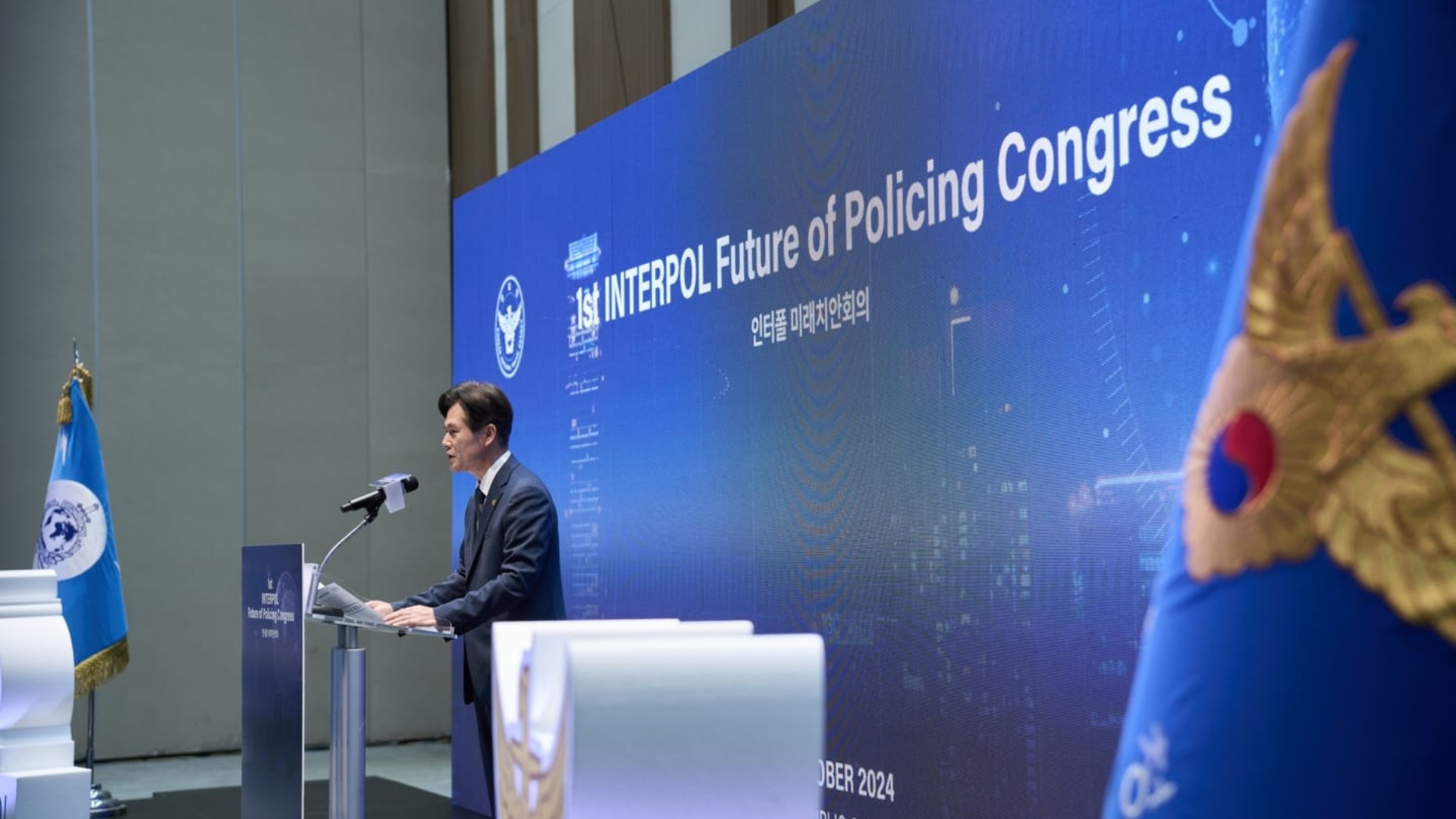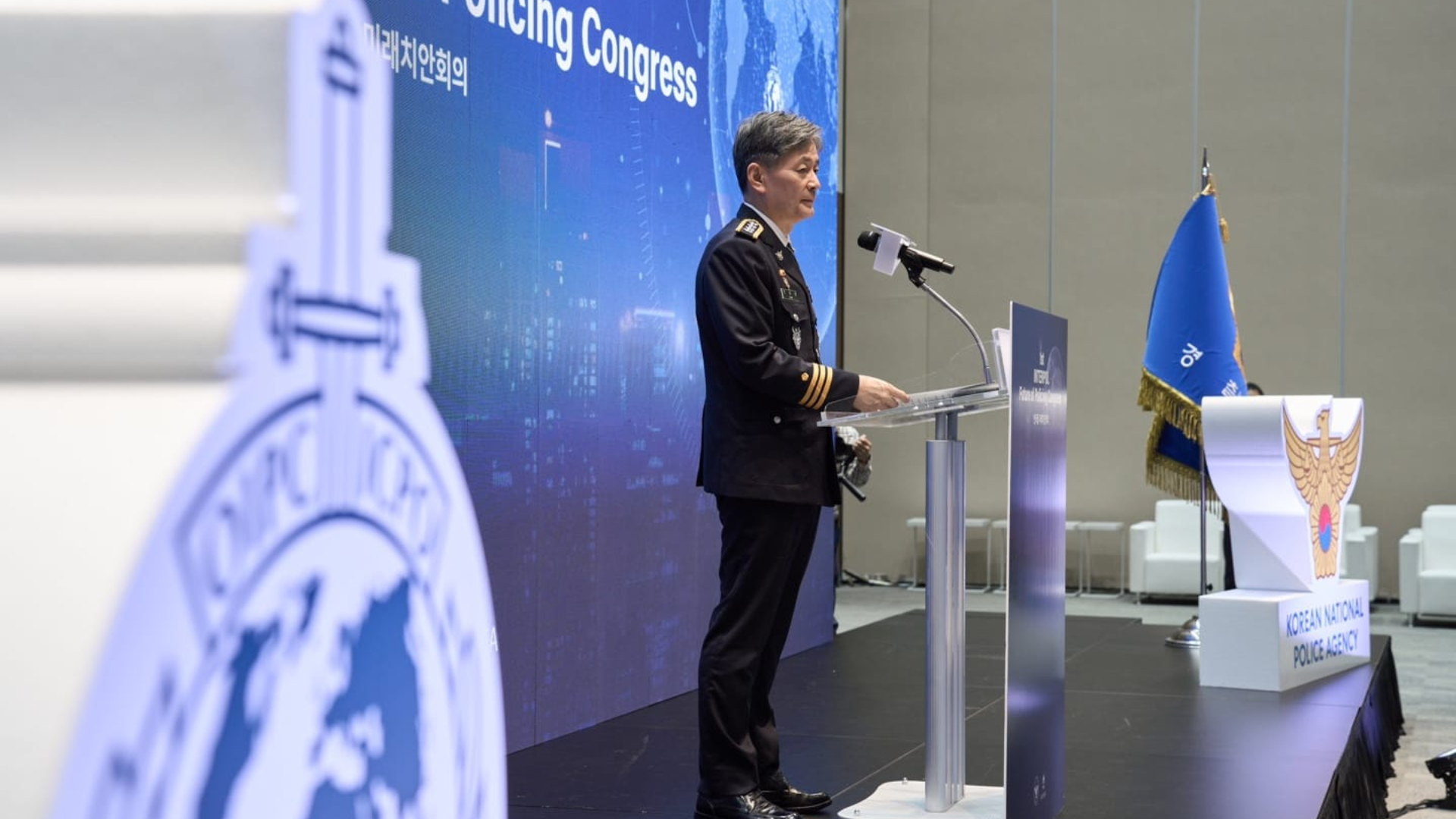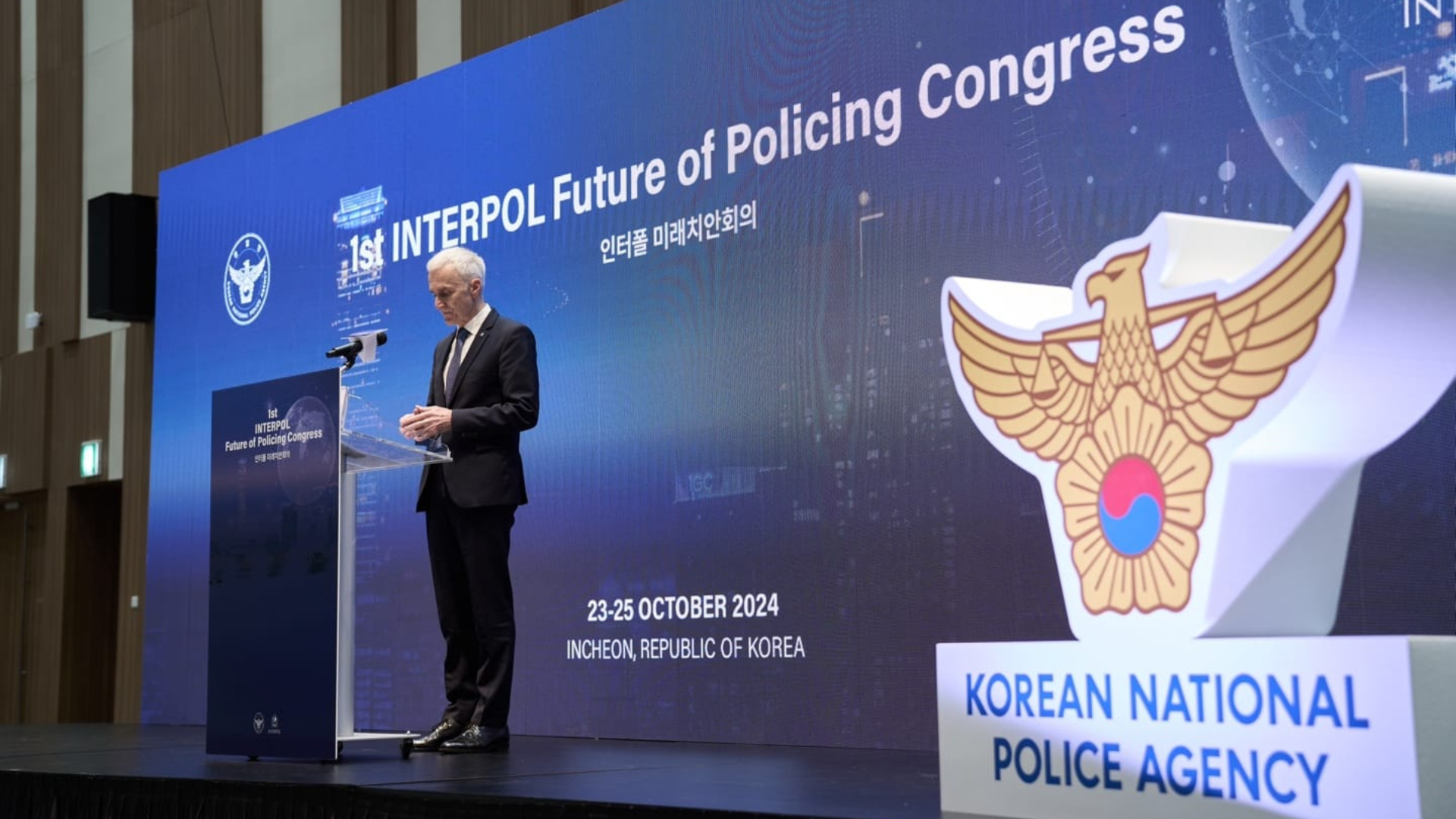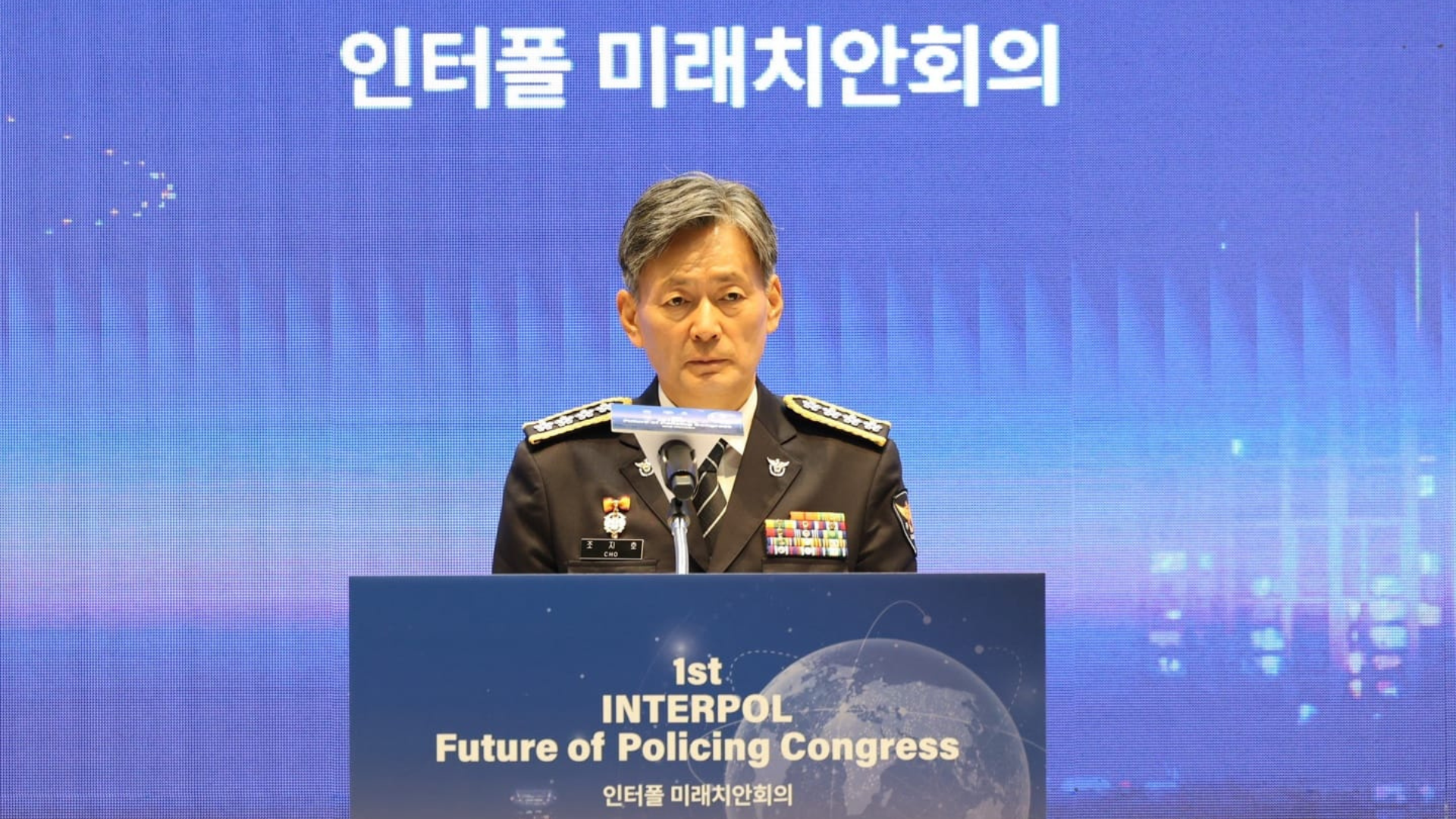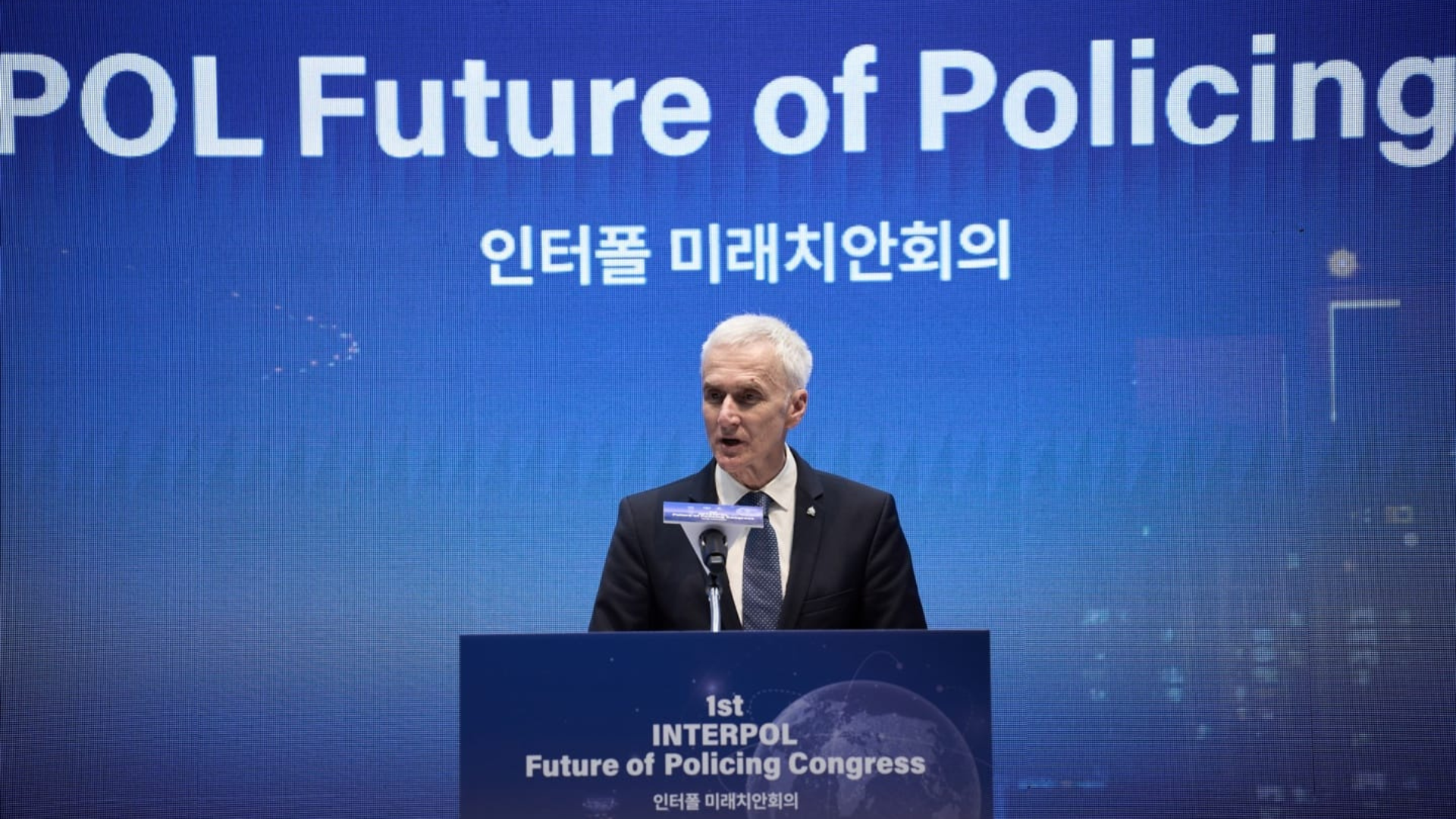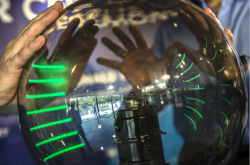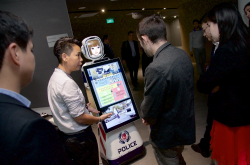INCHEON, Korea – INTERPOL, in collaboration with the Korean National Police Agency (KNPA), is convening the first-ever Future of Policing Congress to address emerging challenges facing law enforcement.
The two-day (23-24 October) event will take place alongside the Korea Police World Expo (KPEX) in Incheon, aiming to address the rapidly changing global security landscape and help prepare law enforcement agencies worldwide for the future.
Bringing together law enforcement leaders, industry experts, academics, and stakeholders from various sectors, the Congress will see delegates explore how global ‘megatrends’ will shape the future of policing.
The event will in turn serve as a platform for participants to identify potential future scenarios, understand their security implications and identify steps to prepare law enforcement to adapt.
INTERPOL Secretary General Jürgen Stock said:
“The Future of Policing Congress is not just a moment of reflection. It is a call to action. Recent years have taught us that the world changes faster than we ever could have imagined. Our ways of working, learning, and operating must keep pace.”
Commissioner General CHO Ji Ho, Korean National Police Agency said:
“Today’s Congress goes beyond simply talking about challenges in policing. It presents countries with an invaluable opportunity to canvass new possibilities in responding to technology-driven crimes and engage with one another for better cooperation.”
Innovation-as-a-service
In recent years, INTERPOL has expanded its strategic foresight capabilities to offer member countries ‘innovation-as-a-service, helping member countries anticipate emerging trends and threats.
Engaging with global experts from the public and private sectors, INTERPOL has rolled out initiatives such as the Future Foresight Lab, Young Global Police Leaders Programme and the Responsible AI Lab.
In 2023, INTERPOL launched Vision 2030 – a major initiative to help steer the strategic direction for the future of global law enforcement.
This was followed by the creation of the INTERPOL Future Council– a diverse group of experts that, from strategic futurists to legal practitioners, academics and young law enforcement voices, helps ensure INTERPOL remains at the forefront of global law enforcement innovation.
Changing models of policing
The Future of Policing Congress is organized into three sessions: the first explores future scenarios, the second examines their impact on law enforcement, and the final session focuses on how law enforcement can prepare to face future challenges.
The Congress, which was built as a hands-on workshop, is facilitated by academics and experts from private sector and international organizations. It utilizes innovative tools like discussions provoked by AI-generated videos and questions on specific topics.
The Future of Policing Congress looks at the future from 5 dimensions including social, technological, economic, environmental, and geopolitical landscapes. The impact on law enforcement will be explored in terms of evolution of crime, policing duties, data and evidence, and changing models of policing, trust and citizen expectations.
The path forward for law enforcement preparedness will encompass equipment and tools, skill sets, processes and procedures, organizational structures, and international cooperation.
The outcomes of the Congress will be compiled and disseminated to INTERPOL’s 196 member countries.




